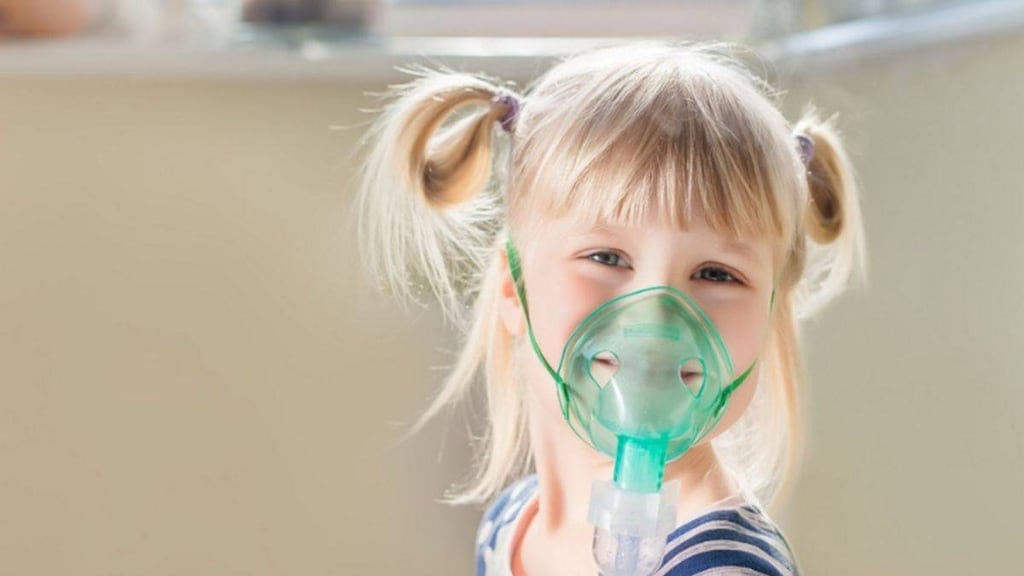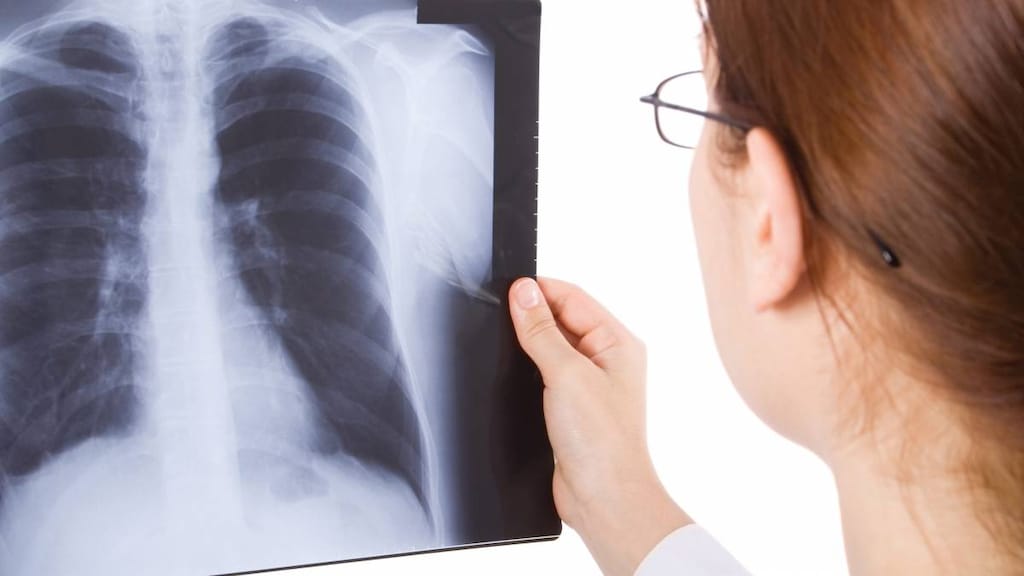What is revefenacin used for?
- Revefenacin is used to treat COPD (chronic obstructive pulmonary disease).
- This medicine is not to be used to treat intense flare-ups of shortness of breath. Use a rescue inhaler. Talk with the doctor.
Before taking revefenacin, tell your doctor:
- If you are allergic to revefenacin; any part of this medicine; or any other drugs, foods, or substances. Tell your doctor about the allergy and what signs you had.
- If you have liver disease.
- If you are taking any of these drugs: Cyclosporine or rifampin.
- If you take other drugs called anticholinergics, like ipratropium or oxybutynin. Ask your doctor if you are not sure if any of your drugs are anticholinergic.
This is not a list of all drugs or health problems that interact with revefenacin.
Tell your doctor and pharmacist about all of your drugs (prescription or OTC, natural products, vitamins) and health problems. You must check to make sure that it is safe for you to take revefenacin with all of your drugs and health problems. Do not start, stop, or change the dose of any drug without checking with your doctor.
What are some things I need to know or do while I take revefenacin?
- Tell all of your health care providers that you take revefenacin. This includes your doctors, nurses, pharmacists, and dentists.
- Call your doctor right away if your breathing problems get worse, if your rescue inhaler does not work as well, or if you need to use your rescue inhaler more often.
- Do not stop using revefenacin without calling the doctor.
- Tell your doctor if you are pregnant or plan on getting pregnant. You will need to talk about the benefits and risks of using revefenacin while you are pregnant.
- Tell your doctor if you are breast-feeding. You will need to talk about any risks to your baby.
How is revefenacin best taken?
Use revefenacin as ordered by your doctor. Read all information given to you. Follow all instructions closely.
- For breathing in only as a liquid (solution) by a special machine (nebulizer) into the lungs.
- Do not swallow revefenacin.
- Do not inject revefenacin.
- Only use the type of nebulizer that you have been told to use. If you are not sure what type of nebulizer to use, talk with the doctor.
- Do not mix other drugs in nebulizer.
- Keep using revefenacin as you have been told by your doctor or other health care provider, even if you feel well.
- Do not use if the solution is cloudy, leaking, or has particles.
- Do not use if solution changes color.
- Throw away any part of opened vial not used after use.
What do I do if I miss a dose?
- Take a missed dose as soon as you think about it.
- If it is close to the time for your next dose, skip the missed dose and go back to your normal time.
- Do not take 2 doses at the same time or extra doses.
What are the side effects of revefenacin that I need to call my doctor about immediately?
WARNING/CAUTION: Even though it may be rare, some people may have very bad and sometimes deadly side effects when taking a drug. Tell your doctor or get medical help right away if you have any of the following signs or symptoms that may be related to a very bad side effect:
- Signs of an allergic reaction, like rash; hives; itching; red, swollen, blistered, or peeling skin with or without fever; wheezing; tightness in the chest or throat; trouble breathing, swallowing, or talking; unusual hoarseness; or swelling of the mouth, face, lips, tongue, or throat.
- Trouble passing urine.
- Pain when passing urine.
- Passing urine more often.
- Passing urine in a weak stream or drips.
- Shortness of breath.
- Chest pain or pressure or a fast heartbeat.
- Upset stomach or throwing up.
- Change in eyesight, eye pain, red eyes, or seeing halos or bright colors around lights. These may be signs of a type of glaucoma. If left untreated, this can lead to lasting eyesight loss.
- This medicine can cause very bad breathing problems right after you take a dose. Sometimes, this may be life-threatening. If you have trouble breathing, breathing that is worse, wheezing, or coughing after using revefenacin, use a rescue inhaler and get medical help right away.
What are some other side effects of revefenacin?
All drugs may cause side effects. However, many people have no side effects or only have minor side effects. Call your doctor or get medical help if any of these side effects or any other side effects bother you or do not go away:
- Cough.
- Runny nose.
- Signs of a common cold.
- Headache.
- Back pain.
These are not all of the side effects that may occur. If you have questions about side effects, call your doctor. Call your doctor for medical advice about side effects.
You may report side effects to the FDA at 1-800-332-1088. You may also report side effects at https://www.fda.gov/medwatch.
If overdose is suspected:
If you think there has been an overdose, call your poison control center or get medical care right away. Be ready to tell or show what was taken, how much, and when it happened.
How do I store and/or throw out revefenacin?
- Store at room temperature.
- Store unused containers in foil pouch until use.
- Protect from heat and light.
- Store in a dry place. Do not store in a bathroom.
- Keep all drugs in a safe place. Keep all drugs out of the reach of children and pets.
- Throw away unused or expired drugs. Do not flush down a toilet or pour down a drain unless you are told to do so. Check with your pharmacist if you have questions about the best way to throw out drugs. There may be drug take-back programs in your area.
Consumer information use and disclaimer
- If your symptoms or health problems do not get better or if they become worse, call your doctor.
- Do not share your drugs with others and do not take anyone else's drugs.
- This medicine comes with an extra patient fact sheet called a Medication Guide. Read it with care. Read it again each time revefenacin is refilled. If you have any questions about revefenacin, please talk with the doctor, pharmacist, or other health care provider.
- If you think there has been an overdose, call your poison control center or get medical care right away. Be ready to tell or show what was taken, how much, and when it happened.
This information should not be used to decide whether or not to take revefenacin or any other medicine. Only the healthcare provider has the knowledge and training to decide which medicines are right for a specific patient. This information does not endorse any medicine as safe, effective, or approved for treating any patient or health condition. This is only a brief summary of general information about this medicine. It does NOT include all information about the possible uses, directions, warnings, precautions, interactions, adverse effects, or risks that may apply to revefenacin. This information is not specific medical advice and does not replace information you receive from the healthcare provider. You must talk with the healthcare provider for complete information about the risks and benefits of using this medicine.




